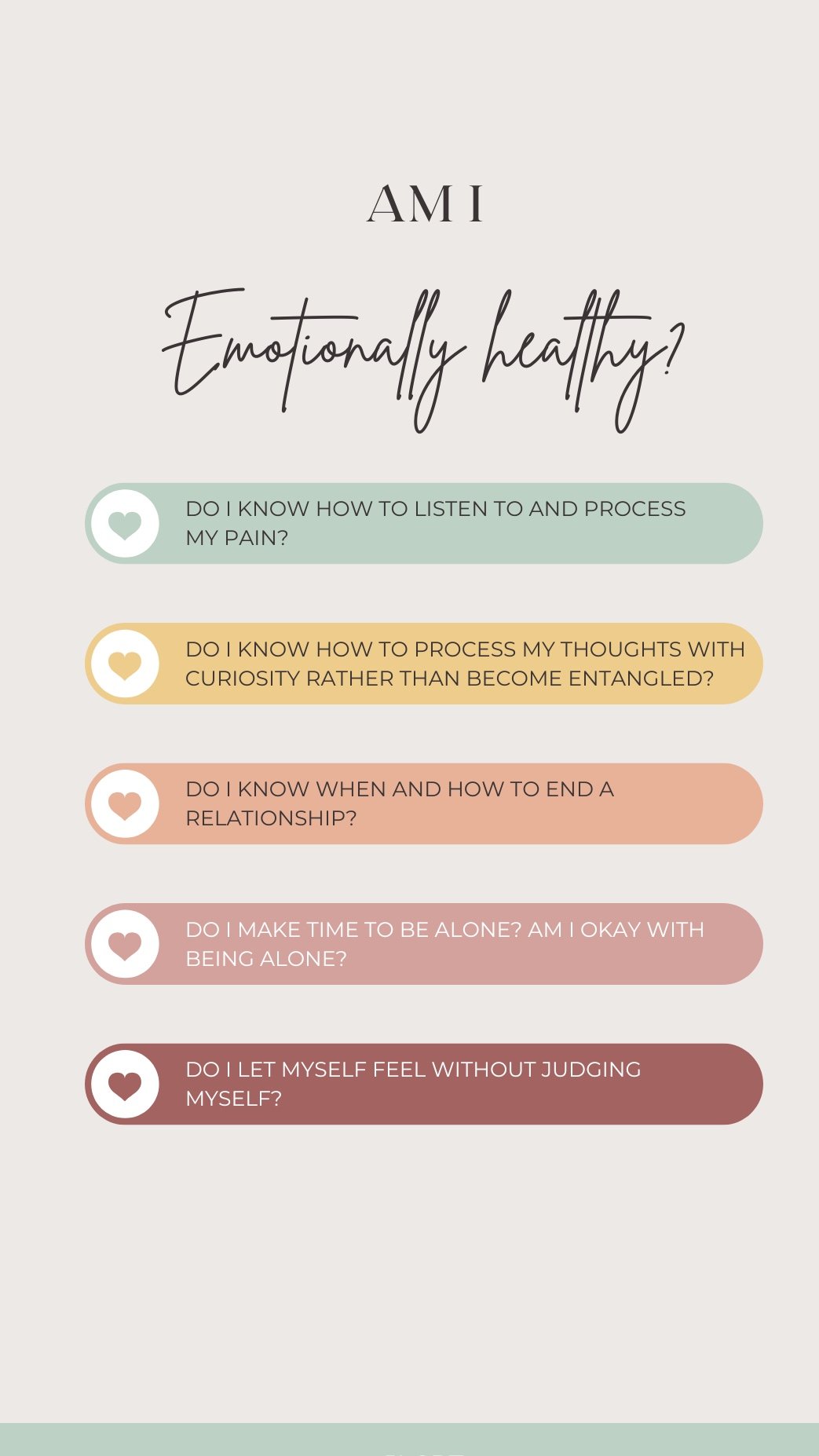Five Things Emotionally Healthy People Do
Modern-day has cultivated a strong focus on health and wellness as a whole, but arguably the most neglected area of health is our emotional health. TikTok has subtly moved from dance routines to glorify the ‘perfect’ 5 am-9 am routine, Sunday resets, green juices (don’t forget to add your collagen), and never ever forget your protein intake. But if we remove the scaffolding of distractions, how are we really?
Mental health is defined as how we process information, whereas emotional health is the relationship with how we feel about the information we process. How do we feel regarding the world around us? Emotional health is your ability to cope with both positive and negative emotions. So how do we know if we are emotionally healthy?
1. Emotionally healthy people know how to listen to their pain.
Emotionally healthy people note emotional stress and discomfort as a signal that something is misaligned. They take time to reflect on the why. Why am I feeling this way? They then begin to reflect on redirecting themselves toward how they can become aligned with who they are and want to be. They resist distraction and investigate whatever made them want to ignore their feelings in the first place.
2. They know how to observe thoughts objectively and not identify with them.
Emotionally healthy people know that you are not your thoughts. You are not your feelings. You are the being that observes, reacts, uses, generates, and experiences those things. You can't control them, but you can observe them so that they don’t control you. Emotionally healthy people observe their thoughts with curiosity, consider their origin, and take time to tend to any unmet needs. They are not reactive to their thoughts.
3. They know when and how to end relationships.
Emotionally healthy people have a clear outline as to how they want to treat others and want to be treated. They provide some flexibility for certain unexpected situations however have clear boundaries around their values. They know how to exchange empathy but also know when their values have tipped into the harmful. They are aware of when to end a relationship and how to do that gracefully. They do not go out in a blaze of anger or ghosting. They take time to grieve and process the relationship (friendship or romantic) rather than treating others as disposable and ‘jumping’ to the next.
4. They can be alone.
Time alone is key to emotional health. Time alone with no input into your emotions gives you perspective and processing. This does not happen when you're around others, watching Netflix or scrolling because you're still consuming emotions. When you're not in the presence of people whom you must monitor your actions and choose your words, you can let yourself just be. It is something emotionally healthy people make time for and honour.
5. They let themselves feel fully without judgement.
The core of every emotional issue is the belief that is it not okay to have them or something is ‘wrong’ by feeling them. It's not the presence of it that is harmful’ it’s the resistance to it that ultimately becomes the problem. Emotionally healthy people know how to do one thing profoundly better than anybody else. They sit with emotions, approach them with curiosity, and consider why that feeling that was activating for them. They do not shut down their feelings. They do not distract. They do not numb with other behaviours. They do not fear losing control. They set time aside, listen to what their feelings are saying and allow themselves what they truly need.
In summary, the walk towards emotional health should be a slow one and speaking from personal experience, it can be a long one too, but on the journey, you will cultivate a firm sense of self, peace in challenging circumstances and an ability to not only cultivate a values-driven life but knowledge of how to defend it.
Thanks for reading!



